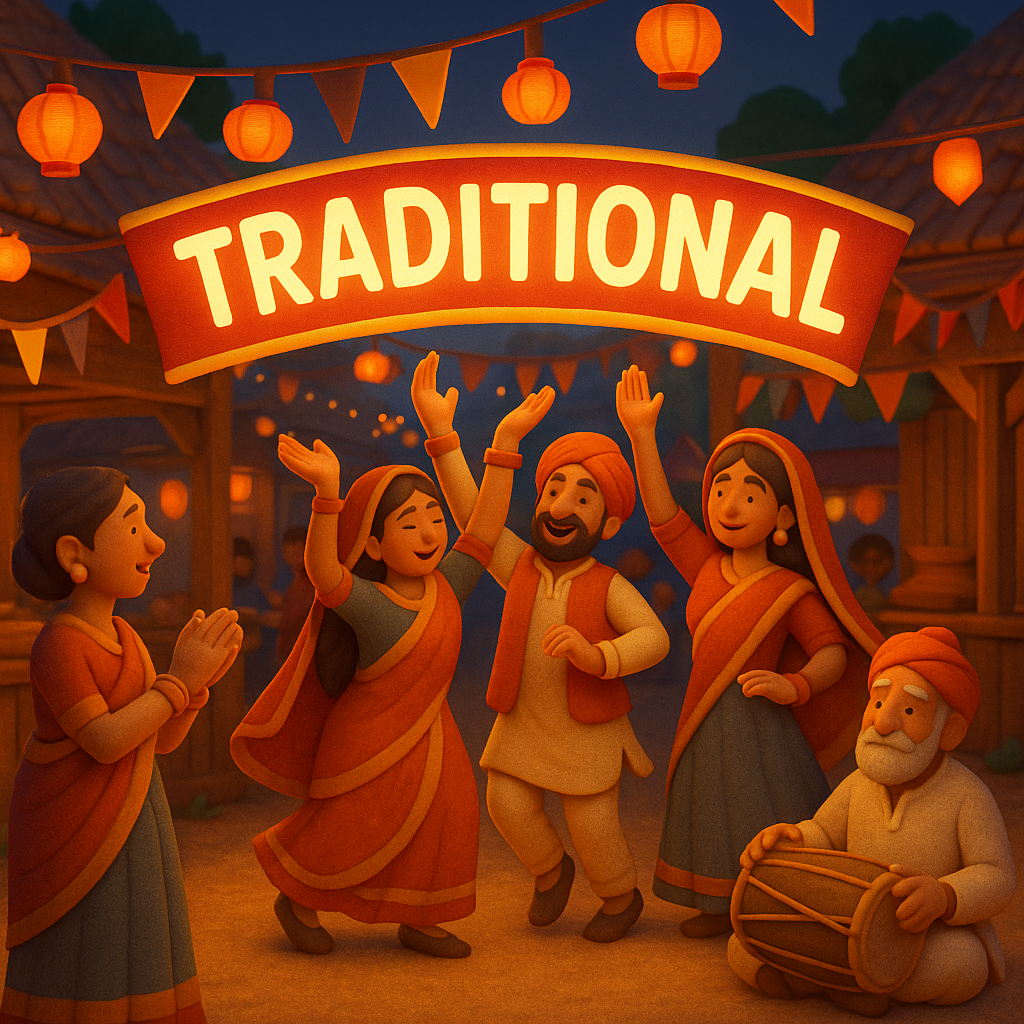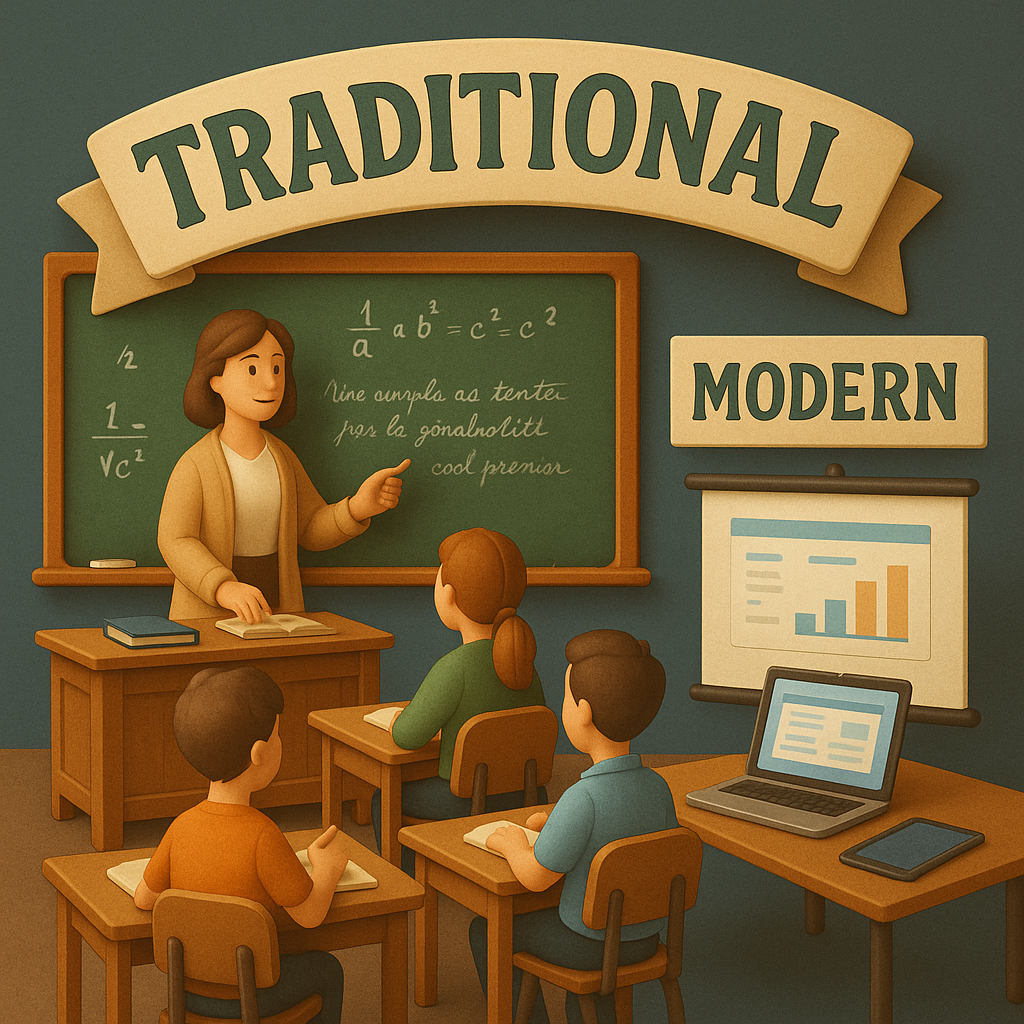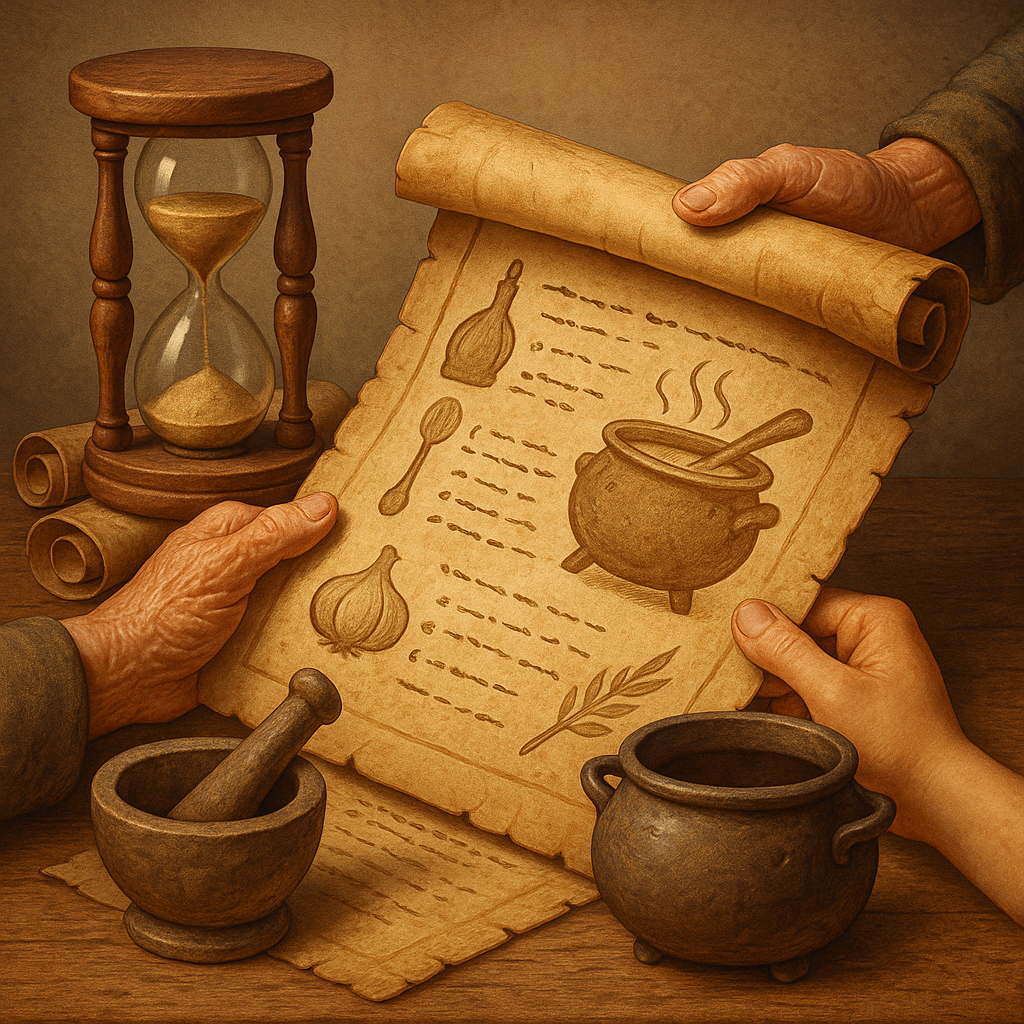Traditional
Definition
Traditional refers to something that is based on long-established customs, beliefs, or practices passed down through generations.
Parts of Speech
- Adjective
Pronunciation
American English
- IPA Pronunciation: /trəˈdɪʃ.ən.əl/
- Respelling: truh-DISH-uh-nuhl
British English
- IPA Pronunciation: /trəˈdɪʃ.ən.əl/
- Respelling: truh-DISH-uh-nuhl
Etymology
The word "traditional" originates from the Latin "traditionem," meaning "a handing over or giving up," derived from "tradere" (to deliver, hand over). It entered Middle English through Old French "tradition."
Derivatives
- Traditionally (adverb)
- Tradition (noun)
- Traditionalist (noun/adjective)
- Traditionalism (noun)
- Nontraditional (adjective)
Synonyms
- Conventional
- Classical
- Customary
Antonyms
- Modern
- Innovative
- Unorthodox
Usage
The adjective "traditional" is used to describe things that adhere to established customs or practices, as in "They wore traditional attire for the ceremony." It can also refer to cultural heritage, as in "Traditional music reflects the history of the region."
Related Terms
- Heritage: Practices or beliefs inherited from the past.
- Culture: The ideas, customs, and social behavior of a group of people.
- Conservatism: A commitment to traditional values and ideas.
Detailed Definitions
Adjective
- Relating to customs or practices established over time: Refers to long-standing cultural or social norms.
- Example: "The festival is celebrated in a traditional manner."
- Resistant to change or innovation: Refers to adhering to established practices rather than adopting new methods.
- Example: "She prefers traditional teaching methods over modern ones."
- Passed down through generations: Refers to things that are inherited or preserved over time.
- Example: "The recipe has been kept in its traditional form for centuries."
traditional



🇨🇳 Mandarin
- 传统的 (chuántǒng de): traditional
- IPA Pronunciation: /ʈʂʰwan˥˥thʊŋ˨˩˦ tɤ˧˥/
- Respelling in English: chuan-tong de
🇮🇳 Hindi
- परंपरागत (paramparāgat): traditional
- IPA Pronunciation: /pəɾəmpəɾaːgət̪/
- Respelling in English: paramparagat
🇪🇸 Spanish
- Tradicional (tradicional): traditional
- IPA Pronunciation: /tɾaðiθjoˈnal/
- Respelling in English: tradicional
🇫🇷 French
- Traditionnel (traditionnel): traditional
- IPA Pronunciation: /tʁadi.sjɔ.nɛl/
- Respelling in English: traditionnel
🇦🇪 Modern Standard Arabic
- تقليدي (taqlīdī): traditional
- IPA Pronunciation: /taqliːdiː/
- Respelling in English: taqlidi
🇧🇩 Bengali
- ঐতিহ্যবাহী (ôitihyabāhī): traditional
- IPA Pronunciation: /ɔitihjabaːhi/
- Respelling in English: oitihyabahi
🇷🇺 Russian
- Традиционный (traditsionnyy): traditional
- IPA Pronunciation: /trədʲɪˈtsɨjənːɨj/
- Respelling in English: traditsionnyy
🇵🇹 Portuguese
- Tradicional (tradicional): traditional
- IPA Pronunciation: /tɾadiˈsjonɐl/
- Respelling in English: tradicional
🇮🇩 Indonesian
- Tradisional (tradisional): traditional
- IPA Pronunciation: /tradisional/
- Respelling in English: tradisional
🇩🇪 German
- Traditionell (traditionell): traditional
- IPA Pronunciation: /tʁadiˈtsjoːnəl/
- Respelling in English: traditionell
🇯🇵 Japanese
- 伝統的な (dentōteki na): traditional
- IPA Pronunciation: /den.toː.te.ki na/
- Respelling in English: dento-teki na
🇻🇳 Vietnamese
- Truyền thống (truyền thống): traditional
- IPA Pronunciation: /ʈʂwɨən˧ˀ˦ tʰwəːŋ˧˥/
- Respelling in English: truyen thong
🇰🇷 Korean
- 전통적인 (jeontongjeogin): traditional
- IPA Pronunciation: /t͡ɕʌn.tʰoŋ.d͡ʑʌ.ɡin/
- Respelling in English: jeon-tong-jeo-gin
🇹🇷 Turkish
- Geleneksel (geleneksel): traditional
- IPA Pronunciation: /ɟeleneksel/
- Respelling in English: geleneksel
🇵🇰 Urdu
- روایتی (ravāyatī): traditional
- IPA Pronunciation: /rəˈvɑːjətiː/
- Respelling in English: ravayati





